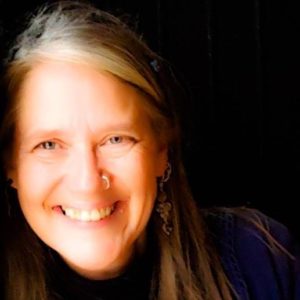
Patricia ‘Iolana holds a PhD in Literature, Theology and the Arts from the University of Glasgow where she examined the significance of Jungian and post-Jungian theory to the development of the Western Goddess Movement. An ordained Pagan Minister and Interfaith advocate, she is fascinated with personal experiences and approaches them from a psychodynamic perspective called Depth Thealogy—which combines Goddess Thealogy with post-Jungian analytical psychology. Her publications include: Psychedelic Mysteries of the Feminine (2019) Spaces of Spirituality (2018) and Celebrating Seasons of the Goddess (2017); Goddess 2.0: A New Path Forward and She Rises! Volume 2 (2016); Goddess Thealogy: An International Journal for the Study of the Divine Feminine 1(1) (2011); and Literature of the Sacred Feminine: Great Mother Archetypes and the Re-emergence of the Goddess in Western Traditions (2009). She can be found on the internet through Academia.edu and blog talk radio: Jung and Goddess.
However, while Warren has found a consensus on the nature of the Dark Goddess amongst the texts and YouTube communities that she is examining, not all adherents within contemporary Goddess Spirituality view the Dark Goddess in the same way. In fact, the Dark, or Shadow aspect of Goddess, is a point of heated debate within the Goddess community amongst adherents, feminist theologians, and thealogians.
Considering the title of her podcast, I was hoping that Dr Susan Palmer would speak about children in all New Religious Movements (NRM). Instead, I found myself immersed in a discussion about children in more problematic groups such as Hari Krishna, the New Unification Church, Children of God, 12 Tribes, Mormon Polygamists, and Scientology.
In a recent interview with the Religious Studies Project, Mirjam Mencej, PhD, Professor of Folklore Studies and Comparative Mythology at the Department of Ethnology and Cultural Anthropology at the University of Ljubljana speaks about her ethnographic research and findings which are presented in her 2017 publication
I can’t help but see the parallels between the Peruvian religious and political history which Fonseca outlines in his interview and the events currently taking place in the United States where religion and politics are more intricately entwined than ever before by a minority Far-Right Conservative Christian movement and its dominant media presence. This intriguing parallel makes Fonseca’s interview timely and important as history repeats itself.
The Religious Studies Project in the UK and State of Formation in the US stand out as two exemplary religious studies projects, often, as with these two, in collaboration with other universities, (as opposed to individual departments or programmes) that utilise social media daily to reach and interact with their intended audience.
Analysing religious affiliation, phenomenon, and experience from a social science approach can reveal far more than a narrow theological or thealogical analysis. Theologians and thealogians appear uninterested in examining religion as an ‘object of interest’ perhaps believing that this perspective denigrates the underlying theological beliefs of the phenomenon being investigated. When, in truth, social science and theology can offer much more when combined into a multidisciplinary approach.
Religious identifications that are alternative to the major world religions are relatively new to census questionnaires. However, there is a stark difference between the available options on religious identity in the 2012 US Census than there are in the 2011 UK Census.Ethan Doyle White, a PhD student in Anthropology of Religion at University College London, recently discussed his research into his 2015 book Wicca: History, Belief, and Community in Modern Pagan Witchcraft.
This work is licensed under a Creative Commons Attribution- NonCommercial- NoDerivs 3.0 Unported License.
The views expressed in podcasts, features and responses are the views of the individual contributors, and do not necessarily reflect the views of The Religious Studies Project or our sponsors. The Religious Studies Project is produced by the Religious Studies Project Association (SCIO), a Scottish Charitable Incorporated Organisation (charity number SC047750).